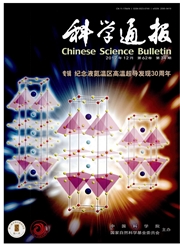

 中文摘要:
中文摘要:
探讨了水文过程非平稳性和全球变化水文响应等热点问题.首先明确了水文系统稳定性与水文过程非平稳性研究对象的差异:水文系统稳定性改变主要指环境变化影响下水文物理系统发生变化,即水文过程确定成分和确定性规律改变,而水文过程非平稳性主要指水文过程随机成分的统计特征发生变化.系统梳理了水文过程非平稳特性研究的若干关键问题,包括水文非平稳性的研究对象、表现方式、判别依据和方法、描述方法等.指出水文过程非平稳性研究应重点关注水文过程的随机成分,应使用三阶宽平稳对水文平稳性进行判别,以满足工程水文设计、水资源评价等需求;可利用随机水文学理论方法判别水文过程非平稳性,对水文过程周期和趋势等特性进行识别,再对随机成分的平稳性进行判断,为随机模拟和水文预报等奠定基础.上述水文过程非平稳性若干关键问题的界定和明确,有望为研究环境变化水文响应的关键科学问题提供借鉴和参考.
 英文摘要:
英文摘要:
Due to the great influence of both global climate change and human activities, climatic and hydrological processes in many basins and regions worldwide show obviously nonstationary variability, which has obvious impact on diverse practical water activities such as the hydrological simulation and forecasting, hydrological and hydraulic designs, hydrological risk evaluation and adaption, and water resources planning and management, and also affect the socioeconomic developments as well as people's lives. Over the last decade, nonstationarity in hydrological process has been becoming a hot and frontier topic in the studies of hydrology and global climate change. However, those basic and major issues on the scientific topic have not been systemically studied, and some understandings about it are limited. In this article, we mainly focused on several major issues about the studies of hydrological nonstationarity. First, we discussed and clarified the difference between the stability of hydrological system and the hydrological nonstationarity. It is pointed out that the former is mainly to study whether the physical hydrological system in a basin keeps its stability under the impacts of both climate change and human activities, which is usually quantified by the deterministic characteristics of hydrological processes, and then simulated by proper physical hydrological models. However, the hydrological nonstationarity is mainly to study whether the statistical characteristics of stochastic hydrological process is changed, including not only the nonstationarity in stochastic components, but also the nonstationarity in deterministic components of hydrological process. Then, we further discussed some key issues about the topic of hydrological nonstationarity, mainly including the research objects, expressing ways, determining criteria, and identification and description methods. We finally pointed out that the studies of hydrological nonstationarity should focus on the stochastic components of hydrological process and th
 同期刊论文项目
同期刊论文项目
 同项目期刊论文
同项目期刊论文
 期刊信息
期刊信息
